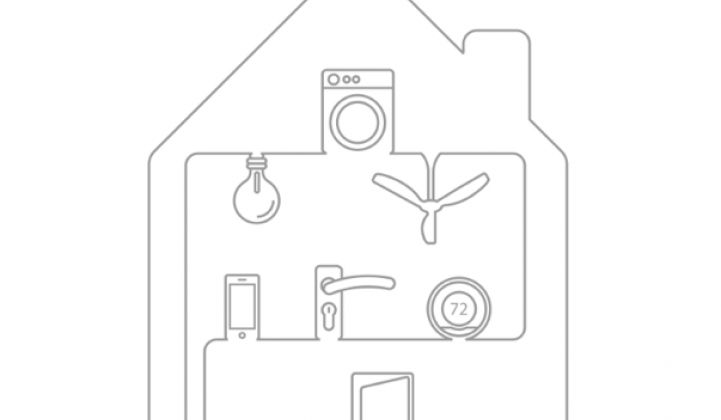One of the biggest hurdles to unlocking the seamless, connected home is getting all of the stuff to communicate with all of the other stuff. Simple, right?
Until now, that has been solved by home automation platforms that run on closed systems in which security and cable companies can carefully construct the user experience.
But consumers will eventually want -- or demand -- more open systems in which they can customize the hardware they want to integrate over the same network. To move closer to this reality, a new industry group is aiming to bring multiple devices onto a single platform.
Google’s Nest Labs, Samsung and others announced a new mesh networking protocol on Tuesday that could potentially achieve more success in opening up the home than have other efforts thus far. The standard, called Thread, was launched by the Thread Group. It also includes founding members Freescale, ARM, Big Ass Fans, Silicon Labs and Yale Security.
Thread is an IPv6 networking protocol built on the IEEE 802.15.4 standard, so devices that already use 802.15.54, such as ZigBee, could migrate to Thread with just a simple firmware update. A version of Thread is already installed in Nest products.
“We wanted to build a technology that uses and combines the best of what’s out there and create a networking protocol that can help the internet of things realize its potential for years to come,” Thread Group wrote on its website.
Thread focuses on simplicity, security, power efficiency, and the convenience of an open protocol. Simplicity of use for consumers will be critical, but security is also becoming an increasingly important aspect of home area networks. Recently, a security firm publicized how it hacked an LIFX LED light bulb. The lighting company quickly fixed the issue, but the breach raised the profile of security issues in the smart home.
Thread is hardly the only effort to build a secure, open networking protocol for the home. In December, many leaders in home appliances and computing, including Linux Foundation, LG Electronics, Panasonic, Qualcomm, Sharp and Cisco, founded the AllSeen Alliance to advance the “internet of things” concept through an open-source framework.
Earlier this month, Thread co-founder Samsung also partnered with Intel to form the Open Interconnect Consortium with a mission to “develop standards and certification for devices involved in the internet of things,” according to CNET. There are also other organizations, such as the Internet of Things Consortium, that want to move the market through “curated networking, consumer research and industry education.”
An open, easy-to-use platform will be critical to widespread adoption, but so will having the kind of products that people covet. The race is officially on between Google, with an open platform that will be offered through the Nest ecosystem, and Apple, which unveiled its HomeKit certification scheme earlier this year.
Apple already has a slew of products for the home that have the MFi certification and will operate on HomeKit. Last month Nest announced the first round of product integration with third parties, including Mercedes-Benz and Whirlpool. Thread will start accepting membership applications later this year, and a product certification program is expected next year.



